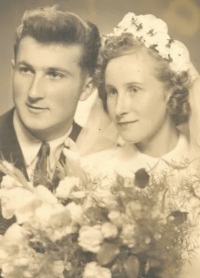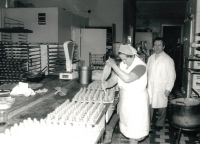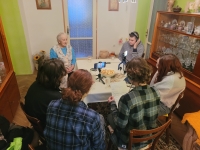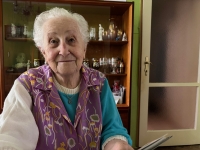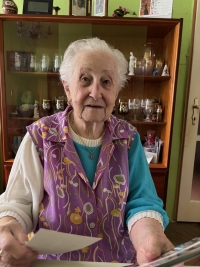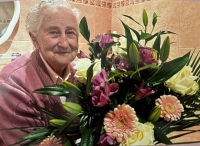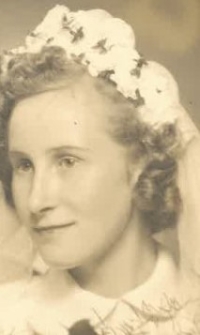The Poles told us to go back to Czech. To the Czechs, we were Poles

Download image
Vanda Špinková was born on January 29, 1935 in Faustynów, Poland, a village founded by Czech Protestants who fled to Poland after the Battle of White Mountain. In 1945, thirty-two Czech families lived in Faustynów, speaking “Old Czech”. Most of them returned to Czechoslovakia after the Second World War as part of repatriation. Among them were Bedřich and Evženie Tomeš with their children Rudolf and Vanda. After arriving in their homeland, they spent three weeks in an internment camp in Ďáblice, Prague, and then the family moved to a small farm in the village of Pěkovice near Mariánské Lázně. Life there was hard thought, after two years the father found work in Rumburk, North Bohemia, at the TOS engineering company. Vanda Špinková started going to school at the age of eleven, after primary school she completed a year-long pastry course in Hronov u Náchodu. She worked in the confectionery all her life. She got married early and got pregnant at the age of seventeen. Her son Václav was born in 1953 and four years later her son Jiří was born. Neither the witness nor her husband were politically involved; the witness was a practicing believer even under communism. She retired in 1989. In 2024, Vanda Špinková was living in Rumburk.
